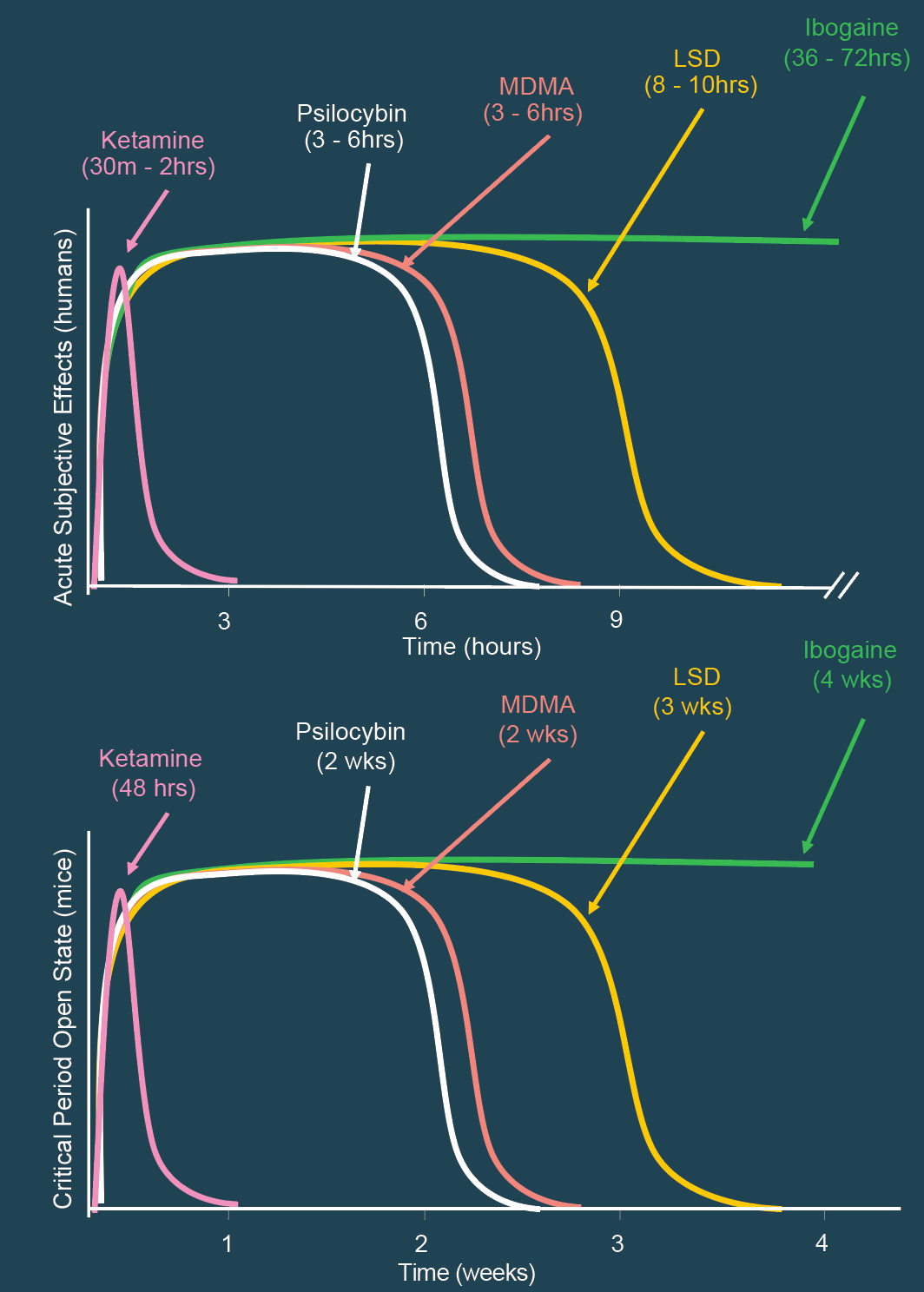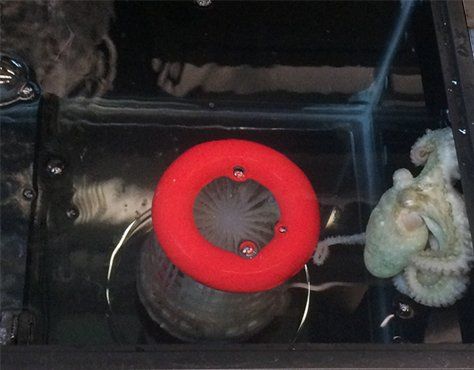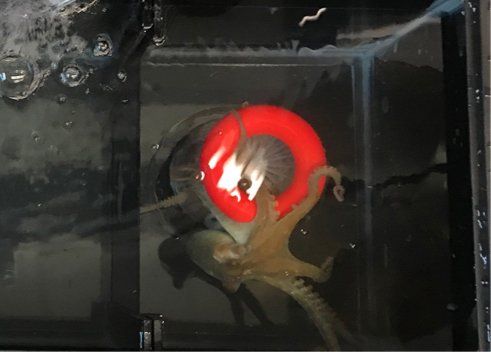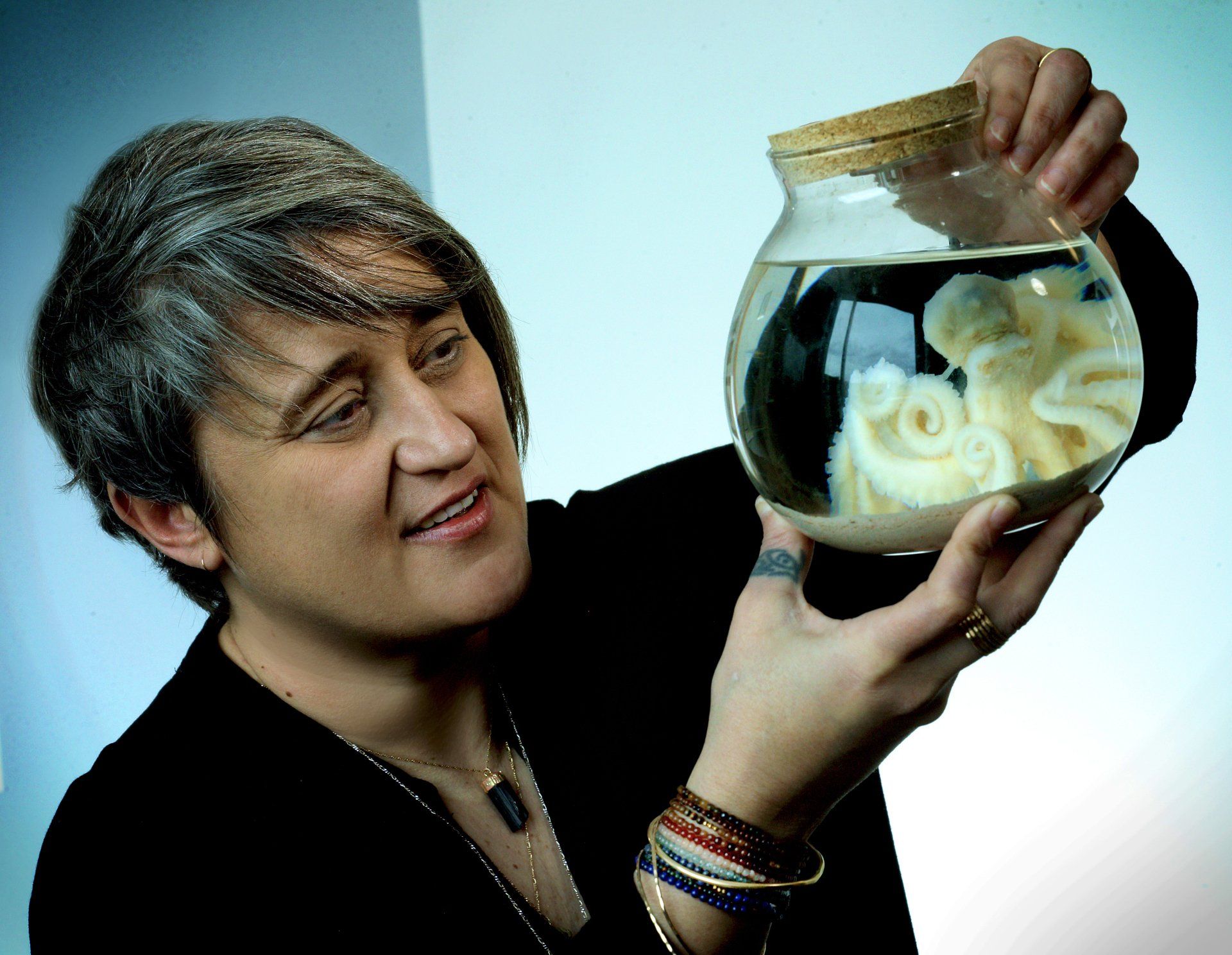
Dr. Romain Nardou and Dr. Gül Dölen
The Dölen laboratory has made the groundbreaking discovery that MDMA can reopen a novel critical period of brain plasticity in mice (Nardou et, al., Nature, 2019). More recently, we have shown that this property generalizes across psychedelics, including ketamine, psilocybin, LSD and ibogaine (Nardou et. al., Nature 2023). Building on this discovery, we have initiated the PHATHOM project (Psychedelic Healing: Adjunct Therapy Harnessing Opened Malleability; www.phathomproject.org), which aims to test the hypothesis that psychedelic drugs are the long-sought 'master keys' for unlocking multiple critical periods across the brain, a property that can be harnessed for therapeutic benefit. Follow this link to find out more about the PHATHOM-Stroke trial or to donate

The duration of the critical period open state induced by psychedelics is proportional to the duration of their acute subjective effects (Adapted from Nardou et al., Nature
2023).
playlist
The Dölen lab's studies of psychedelic drugs in evolutionarily distant species like octopus, have revealed that these drugs target ancient mechanisms that have been conserved for hundreds of millions of years. We have examined the deep evolution of the SLC6A4 gene family and demonstrated that MDMA, which binds to this transporter, is able to induce prosocial behavior in octopus. (Edsinger and Dölen, Current Biology, 2018).

Before treatment, Octopus bimaculoides
exhibits minimal social interaction. (From Edsinger and Dölen, Current Biology
2018).

After treatment with MDMA, Octopus bimaculoides exhibits a qualitatively more prosocial body posture (From Edsinger and Dölen, Current Biology
2018).

Dr. Dölen examines an octopus specimen
